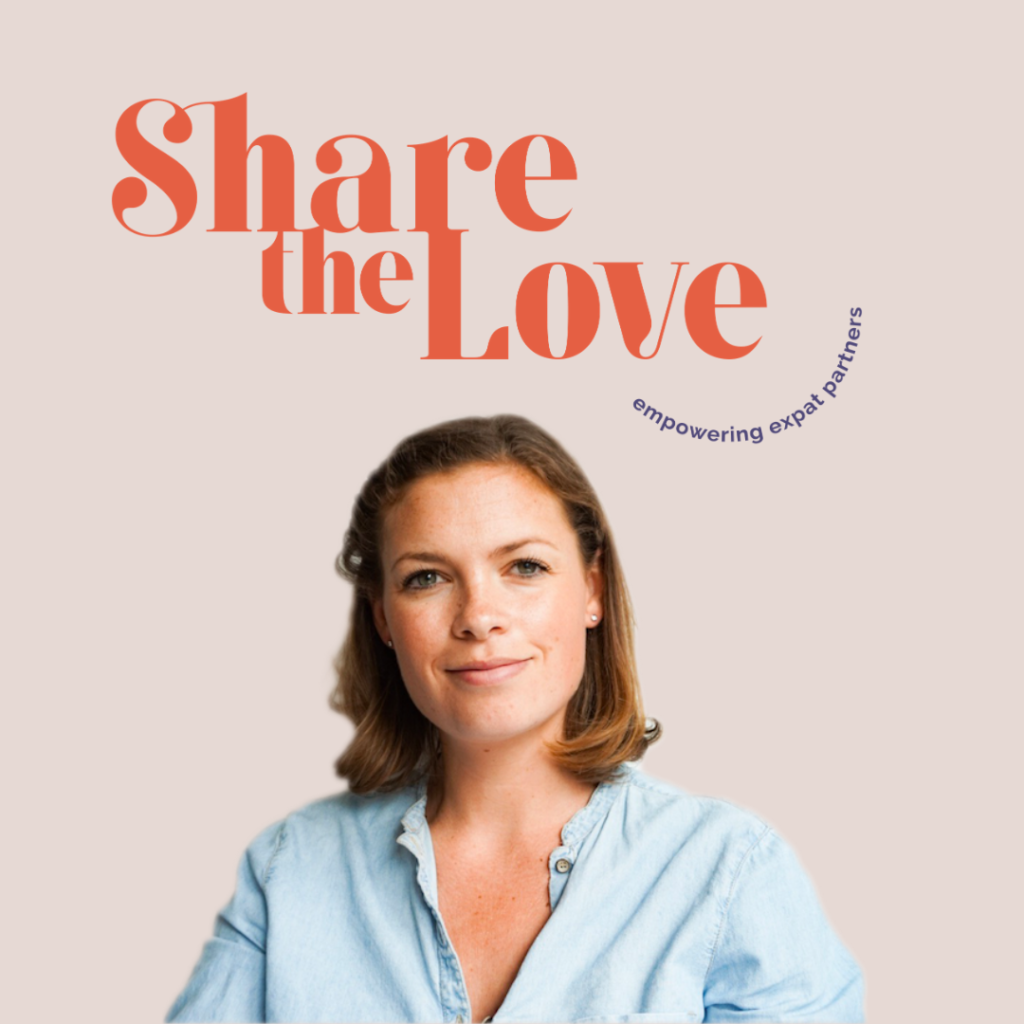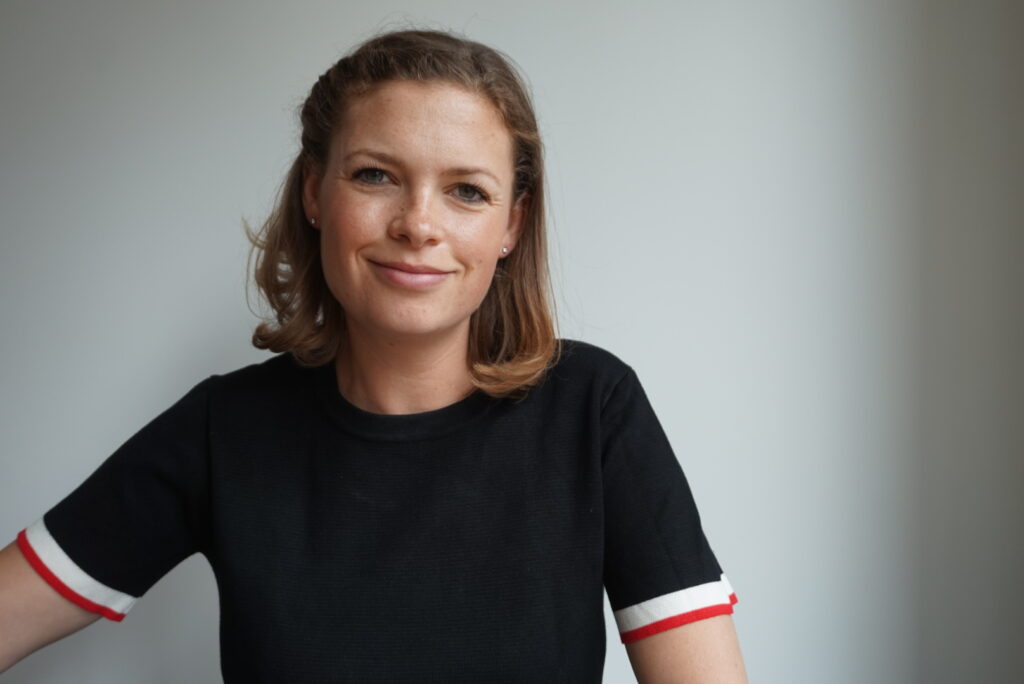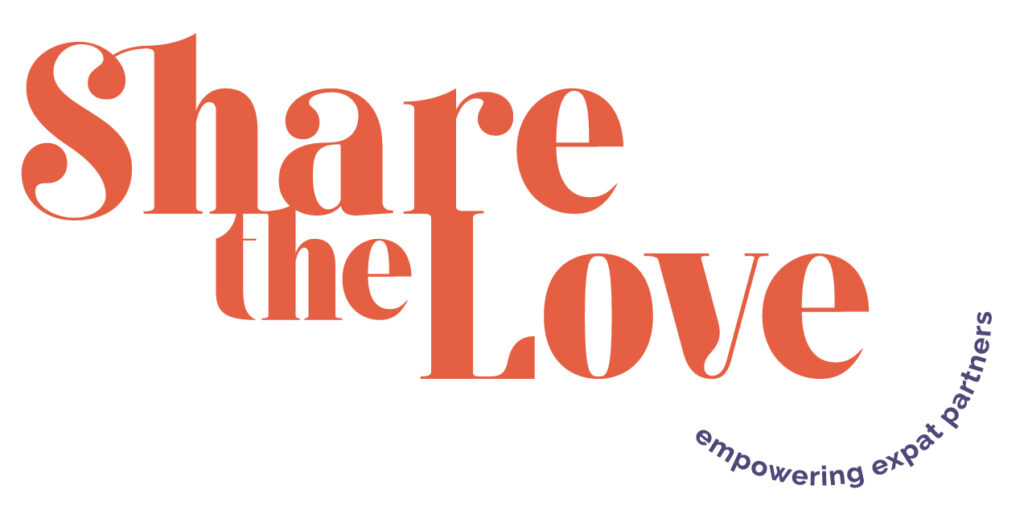Welcome to the next interview in my expat coaching series.
If you’re new here, I’m on a mission to fully understand what expat coaching is and how it helps people. My first interview with Jessica from Little Nomads Coaching is available here.
Once you’ve caught up with that, scroll down to dive into the next instalment with Share the Love Coaching.
Also, keep reading for a chance to win a FREE E-BOOK ⬇️
What the f*** is an Expat Coach w/ Little Nomads Coaching
Meet Kate 👋 she’s a German native who’s lived in Spain, the UK, Taiwan and the USA. She started SharetheLove to motivate and support other expats, particularly expat partners and specifically expat partners who struggle with their careers abroad.

Here’s her take on expat coaching:
1. What is coaching?
Primarily coaching is a dialogue between a specialist and a client with the aim of helping the client obtain a fulfilling life. That can be in any area of life. Some of my clients are having relationship issues, doubt their own competencies, or want to quit their job but many of them are confronted with a big decision or do not see how to solve their problems on their own.
Basically, it’s a conversation in which the coach uses profound and thought-provoking questions to trigger something deep inside the client and create change. Therefore, the two most essential skills of a great coach are powerful questioning and active listening!
Coaching blends the learnings from psychology, business, philosophy, spirituality, and even sports together. It has a huge aspect of accountability since you commit to action steps at the end of the session. It also creates the famous “EUREKA!” moments, as the client can communicate their limiting beliefs and thoughts in an unbiased space.
2. Are you a therapist, a guidance counsellor or a consultant? Or none of these things? Or all of these things?
The distinction between those professions is very important!
The focus of my work is shaping the future of my client and creating the necessary push to kick off the process. A therapist however is dealing with problems from the past. The moment I notice that my client is not ready yet to focus on the future due to some past trauma, I immediately refer them to a specialist.
Also in contrast to a consultant, a coach never gives advice.
I once had a client ask me whether she should quit her job or not. That is not my decision to make but we used the session to work on her values, strengths, and goals for life and so she was able to make her own informed and well-reflected decision.
I also cannot consult on the work permit regulations of specific countries. There is a ton of information on the Internet about expatriation to specific countries, including the tax and work permit regulations of those countries.
Coaching becomes relevant after you’ve obtained that information. What to do when you won’t have a work permit? How do you find fulfilment nonetheless?
This is also relevant the other way round: Many of my clients do have a work permit but struggle with an unfamiliar job market and communicate their strengths. In these cases, we use coaching to get to know you better and dig deeper. It’s perfect because it allows the client to ask, possibly for the first time since leaving school, “what do I want to do with my life?”
3. Define an expat.
The terminology is a tricky thing. I just published a Female Expat study where I interviewed 30 women around the world and I called them Female Expats.
I could have described them as migrants, of course! And there is an interesting discussion going on within the expat community of how we shape our community when using expats instead of migrants.
I refer to my clients as expats, female expats, and expat partners, as I believe their situation is different from the one of a migrant. The majority of these women are living abroad in a specific country for a limited amount of time before planning to return. The majority of corporate expat assignments last 2-5 years.
Most clients never thought about moving to this country before their partner came home with his employer’s proposal. So there is not this sentiment of wanting a better life or finding a new home somewhere else. But there is always this sentiment that this is temporary. The longer I do what I do the more women I coach who are actually seeking a better life abroad for good and are migrants.
At the same time, many started with a 2-year assignment and are still living abroad 20 years later. So there is a certain grey area and if you ask me again in one year my answer might be different.
The time construct, however, is such an important area to work on in my coaching sessions. Working on the question: “So what would you do if you stay here for 10 years not 2 years?” often creates one of those “EUREKA!” moments. The Expat Partner often feels trapped in this feeling of not being in charge of how long she will be in one place before moving again. Regaining this sense of self-control is core in coaching.
4. What is an expat coach?
An expat coach supports people with their transition into new and unfamiliar surroundings.
However, it doesn’t stop there. I often coach clients who are about to return or have already returned and are experiencing reverse culture shock. Moving countries often leads to big questions: What to do professionally? What is my new role in the family? (Many people struggle with the retraditionalisation of roles abroad) How can I help my children to adapt?
So the niche “expat coaching” always has this added layer of intercultural communication, big transitions in life, and equipping the client with the confidence to tackle the unknown.

5. What inspired you to become a coach?
It was actually my own experience that inspired me to become a coach.
I followed a very linear and ambitious corporate career path before moving abroad. And while I was living abroad before, moving to the United States was my first time in the role of an accompanying partner.
My husband got this job opportunity and while I enjoyed the adventure very much I was shocked to see how many accompanying partners are not working while being abroad. Not because they do not want to but because it is just a huge challenge to navigate the international job market with all the bureaucracy.
I was coached during our time in Chicago. I experienced this “EUREKA!” moment myself and decided to shift my career from business development and marketing consultant to expat partner career coach.
I had this longing to provide this feeling to others. I find it amazing to help women by offering my expertise and time. I feel very dedicated to my audience and today I have the huge privilege to coach amazing women from all around the world and help them create the life they want.
6. What credentials do you have to support your coaching business?
Very annoyingly the coaching market is not regulated yet. So technically everyone can hop on LinkedIn and call themself a coach. I feel very strongly that you need a certification!
A coach has a huge influence on peoples’ lives! Clients who I have coached have shifted career paths after our time together or entered a completely new direction in their lives. It is important to educate oneself in learning not to guide them.
It is a process to learn the difference between giving guidance based on your own experiences or guidance based on the client’s DNA.
I invested in very comprehensive coaching training. In more than 180 hours of training, I got certified as a coach. This way I am also able to watch out for red flags and refer someone to a therapist.
I am pretty sure, that there will be some regulation in the future but in the meantime, I encourage everyone to look into the credentials of a potential coach and always book a free discovery call to see if this coach is the right fit.
7. What do you do exactly? I mean, how do you help people?
As a certified coach, my only agenda is the wellbeing of my client. I don’t lead them in any particular direction as family and friends naturally do during a conversation. A coach trusts that the client themselves is resourceful enough to figure out her way of doing things when provided the space to think, reflect and question the status quo.
I help my clients find those “EUREKA!” moments and answer questions such as: “How can I adapt to my new role as an expat partner?”, “How can I help my family adapt to this new life?” and “What do I do professionally?”
8. What do you not do? Who do you not help?
As mentioned above, I am not a consultant or a therapist. I can’t guide my clients in any way, I can only help them realise the tools they already have to help find their way through the confusing expat journey.

9. Talk me through a typical expat coaching session. What exactly is my money getting me?
While I have a structure and a program, every session is different as it is totally based on the client’s agenda. I have a toolset of different reflection exercises to get the thought process started and from there on we will go deeper into the specific question mark you have in mind.
The magic, however, happens in between sessions.
You are partnering with me as your coach and during our time together, I will be your cheerleader and your mirror. I keep you accountable for the action steps we agreed on and provide you with further resources. The time together is like a journey.
I also often use so-called blended coaching. Meaning the moment we figure out your WHAT and HOW, I will shift to career consulting wherever suitable. This also entails working on your elevator pitch, CV, and LinkedIn profile so that you are perfectly equipped.
10. Do you think the expat experience is often hyped up too much online and can therefore have an adverse effect on aspiring or new expats who feel like they should be happy and wonderful all the time?
My most read blog post is about the “spoilt and aimless expat partner”. It covers this idea of the outside world, that the accompanying partner is sitting at the pool, drinking margaritas, and having a perfect life.
The reality however is different and the hard truth is that many expat partners struggle with a shift of their identity. They feel lost and insecure. Who am I without my job title? What do I do without my familiar support network?
The identity is disrupted on so many different layers that expatriation is one of the most intense experiences you can have. Maybe similar to becoming a mother. You have this glamorous picture of holding a peacefully sleeping baby in your arm while the reality includes major issues with breastfeeding and not showering for days.
So there is always a gap between the outside perspective and the real-life truth.
Let’s just say: If the reality of expatriation would be as perfect as illustrated from time to time, there would be no need for my profession!

Share the Love Services:
Click here to book a FREE discovery call with Kate now!
If you’d like to join a group of other women in similar positions to you, you can join Kate’s “Jumpstart Your Career” mastermind group.
Or if you prefer 1:1 coaching, she also offers a program “From Career Break to Career Boost” specifically designed for global mums.
Kate has also produced two wonderful e-books, which you can find below:
⬇️ FREE E-BOOK GIVEAWAY ⬇️
Do you like free stuff? Of course you do!
Kate has very kindly offered to do a giveaway of TWO COPIES of her Expat Partner Career Workbook!
You and a friend can win a copy each. Here’s how:
GIVEAWAY RULES:
- Follow both myself and Kate on Instagram.
- Like the giveaway post on my profile.
- Tag a friend you think could also benefit from the book.
Results will be announced Sunday 16th January 2022 at 11:00am CET ⏰

Pingback: What exactly does an Expat Coach do? Helping expats make friends abroad with Sarah, friendship and expat coach.